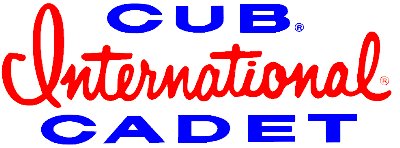Clint
I can't speak specifically to the 682 but any electric clutch that I have seen (I've seen many) has a protective coating on the windings. If the winding touches the casing there is a potential for a short. When it shorts out the clutch will not work correctly or at all and in some cases I have witnessed it will completely shut the engine down. I was told that was due to a type of surge protector (for lack of a better description) built into the wiring. In this particular case the copper was rubbing on the clutch casing and sparks would shot out around the clutch as it was activated (looked like a pinwheel) until it would shut everything down.
Also, a coil with a broken wire can work fine when cold. As the winding heats up and expands the wire separates and failure occurs. Seems like this could be the same concept on the clutch winding.
A way to narrow the culprit down is to do a resistance test on the clutch after it stops working or just do a direct connection to listen for the clicking of the clutch plate if no click then current is not flowing all the way through the winding or its shorted out. This would eliminate switches or other malfunctions.
I hope the Old Heads will agree or tell me where I screwed up!
I can't speak specifically to the 682 but any electric clutch that I have seen (I've seen many) has a protective coating on the windings. If the winding touches the casing there is a potential for a short. When it shorts out the clutch will not work correctly or at all and in some cases I have witnessed it will completely shut the engine down. I was told that was due to a type of surge protector (for lack of a better description) built into the wiring. In this particular case the copper was rubbing on the clutch casing and sparks would shot out around the clutch as it was activated (looked like a pinwheel) until it would shut everything down.
Also, a coil with a broken wire can work fine when cold. As the winding heats up and expands the wire separates and failure occurs. Seems like this could be the same concept on the clutch winding.
A way to narrow the culprit down is to do a resistance test on the clutch after it stops working or just do a direct connection to listen for the clicking of the clutch plate if no click then current is not flowing all the way through the winding or its shorted out. This would eliminate switches or other malfunctions.
I hope the Old Heads will agree or tell me where I screwed up!





